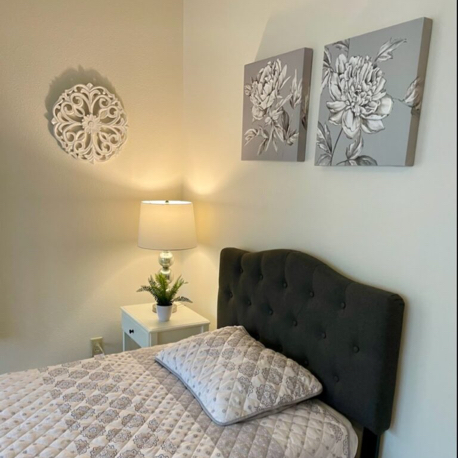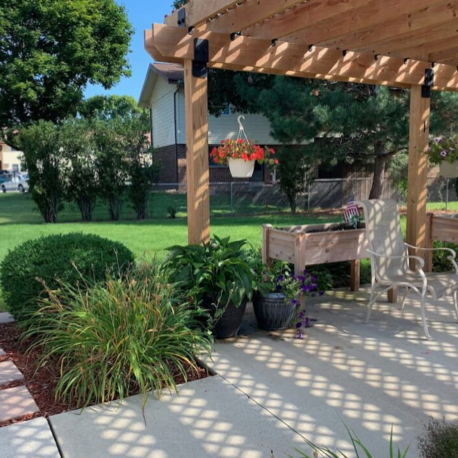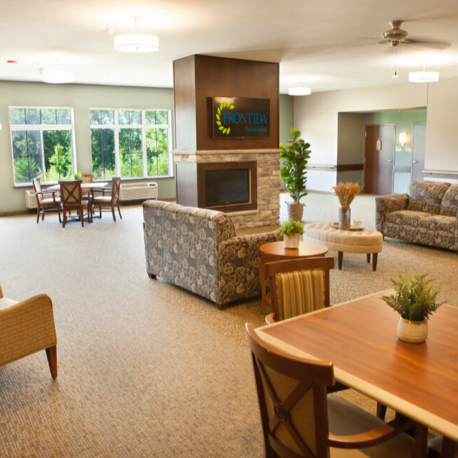Key Takeaways
- Keep conversations simple and focused to make communication easier for individuals with dementia.
- Speak slowly and clearly to help them follow along and stay engaged.
- Prioritize creating meaningful connections during your calls, even if challenges arise.
Tips for Talking on the Phone with Someone with Dementia
Phone conversations with loved ones living with dementia can feel challenging, but they don’t have to be overwhelming. With the right approach, these calls can become meaningful moments of connection. Start by keeping the conversation focused and straightforward, and speak slowly and clearly to help them follow along.
Understanding how dementia affects communication is key to having more successful calls. Be patient, avoid correction, and focus on creating a calm, reassuring tone to maintain that critical bond, even when you’re apart.
How Dementia Affects Communication
Dementia affects how the brain processes information, making communication harder for your loved one. Understanding these changes can help you connect and support them better.
- Verbal communication struggles: They may struggle to find the right words, follow conversations, or remember what was just said.
- Challenges with phone calls: Without visual cues like facial expressions, phone conversations can feel confusing or overwhelming.
- Memory loss impacts conversations: They may not recall recent events or might repeat questions. This is a symptom of dementia, not a reflection of their feelings.
- Slower processing time: It may take them longer to understand and respond, even if they’re fully engaged.
Patience and understanding are key to meaningful communication. These changes are part of the condition, not a reflection of your loved one’s care for you.
Tips for Phone Conversations
When speaking with someone experiencing cognitive changes, patience and understanding are key. Adapting your approach during phone conversations can make communication smoother and more meaningful for both of you.
Be Prepared Before You Call
Having a plan before calling can help create a positive and productive conversation.
- Pick the right time: Call when your loved one is alert and comfortable, like in the morning or early afternoon. Avoid times when they may be tired, like during meals or nap time.
- Prepare simple topics: Have easy, pleasant subjects to discuss, like happy memories, their day, or hobbies. Avoid stressful or complex topics.
- Create a quiet environment: Be in a calm, quiet space without background noise to help them focus and understand.
With patience, empathy, and thoughtful communication, you can create meaningful interactions with someone living with dementia.
Practice Patience During the Call
Give your loved one time and space during conversations. Here’s how to make communication smoother:
- Allow extra time: Pause after speaking to let them process and respond. Silence can help them think.
- Be patient with repetition: If they repeat questions or seem confused, answer kindly each time. Avoid saying, “I just told you that,” as it may upset them.
- Adjust expectations: Calls may be shorter than you’d like. Even a brief chat can still be meaningful.
Some days will go better than others, and that’s okay—focus on the connection you share.
Keep Your Tone Positive & Warm
Your voice conveys emotions that your loved one will sense, even if words are difficult for them.
- Use a warm tone: Speak with love and support.
- Smile while you talk: Smiling makes your tone more pleasant and engaging.
- Focus on positive topics: Share good news, happy memories, or ask about activities they enjoy.
- Avoid stressful subjects: Steer clear of upsetting topics or correcting their misconceptions.
These minor adjustments can make a big difference in how the conversation feels.
Speak Slowly & Use Simple Language
A gentle, straightforward approach helps foster understanding and connection.
- Speak slowly & clearly: Give them time to process each word. Speaking too quickly can make it harder to follow.
- Use simple sentences: For example, instead of “I was wondering if you might be interested in having me visit sometime next week,” try, “I’d like to visit you next week.”
- Stick to familiar words: Use language they understand—avoid slang or confusing expressions.
- Be patient: Pause to let them process and respond.
Clear, thoughtful communication strengthens connections and understanding.
How Memory Care Can Help

Staying connected with a loved one who has dementia can be challenging, but memory care communities like Frontida make it easier. Their trained staff provide the support needed for meaningful communication.
- Facilitated communication: Staff assist with phone calls, ensuring your loved one is ready to connect with family.
- Personalized timing: Specialists help identify the best times for calls based on daily routines and energy levels.
- Preparation & comfort: Staff remind your loved one about calls and settle them in a quiet, comfortable space.
- Supportive environment: A structured, caring setting reduces anxiety and confusion, making conversations easier.
With professional guidance and a nurturing environment, memory care communities help families create meaningful moments of connection. Staying close to your loved one is always possible.
Staying Connected Despite the Challenges
Phone conversations with someone living with dementia require patience, understanding, and flexibility. Some calls will go smoothly, while others might be more challenging—and that’s okay. Remember that your loved one benefits from hearing your voice, even if the conversation doesn’t go as planned. The emotional connection you share remains strong, even when words become difficult.Frontida’s memory care communities provide a secure, nurturing environment where your loved one can feel empowered while receiving the personalized support they deserve. Contact us today to learn how we can provide the specialized support your loved one needs, so you can focus on being a loving family member.







